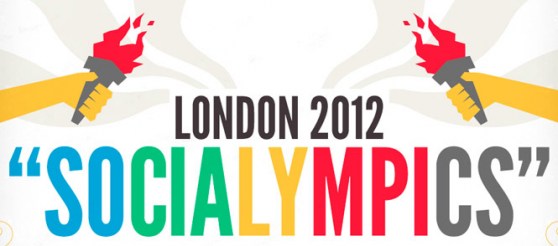Want smarter insights in your inbox? Sign up for our weekly newsletters to get only what matters to enterprise AI, data, and security leaders. Subscribe Now

This year’s Olympics earned the nickname “Socialympics.” It has inspired huge waves of tweets, brought down the reputation of old media giants, and earned athletes millions of new followers in weeks.
Since the Beijing Olympics four years ago, the use of Facebook and Twitter has exploded. In 2008, there were only 6 million people on Twitter. Now, the network has rocketed past 600 million. Athletes can engage directly with their fans; social media marketing and analytics companies can track shifts in public opinion and serve real-time advertising; and for the first time, London’s tech startups have benefited from an influx of tourism.
In the spirit of a little friendly competition, we’re evaluating the dollars earned and headlines won to anoint the real winners of the 2012 Socialympics.
Gold Medal: #NBCFail
Social media monitoring companies have been tracking the eruption of chatter on Twitter and Facebook like hawks. It’s favorite meme? #NBCFail. NetBase, a social media analysis tool, found that there were a whopping 93,000 #NBCFail posts this month, which generated nearly 148 million impressions. View an infographic here with more social data from the world’s first social Olympics.
Topsy Labs, a Twitter tracking tool company, claims its algorithm can pinpoint the most important Olympics-focused tweets in seconds. The company tracked the #NBCFail tag throughout the Games, and served up real-time reports to media companies like the Washington Post and Mashable.
“This is the first time we have seen something like this,” said Duncan Greatwood, Topsy’s Labs’ CEO. “When a race or story around the Olympics catches the public’s attention, we can help advertisers and the media react fast.”
Steven Marx, an occasional Twitter user who first used #NBCFail on a whim, achieved more acclaim during the Olympic Games that the fallen television network. PeopleBrowsr, another social media analysis tool tracking the Olympics, revealed Marx as the originator of the hashtag.
According to PeopleBrowsr, on July 27, the day of the ceremony, there were just 212 #NBCFail tweets. By July 28, there were 6,000 and by July 29, the number had risen to 20,000.
NBC walked away with its tail between its legs, but #NBCFail proved to be a true money-maker for social media and analytics companies.
Silver Medal: Michael Phelps
Phelps left London a decorated hero with 22 medals. But he also received a new honor: one million new Twitter followers and 800,000 Facebook fans, according to social media monitoring tool, Starcount.
The Olympics has been the ideal venue for these athletes to communicate with fans. We hung on Phelps’ every tweet during the Olympics, mostly congratulating fellow athletes and retweets of inspiring quotes.
Others didn’t fare quite so well. Two athletes were expelled from the Games for their racist tweets. Serena Williams failed to issue a single tweet to her 1.15 million Facebook fans.
Bronze Medal: Usain Bolt
The American swimmer’s popularity was very nearly eclipsed by Jamaican sprinter, Usain Bolt. Before the Olympic Games, Bolt had 7.6 million Twitter followers and Facebook fans; after his gold-medal Olympic record in the 100 meters, he’s eclipsed 8.5 million.
When Bolt won the 200-meter final, the Twitter ecosystem went nuts. Bolt also set records for how many tweets per minute contained his name. “Record alert!” Twitter tweeted. “(at)usainbolt sets a new Olympic Games conversation record with over 80,000 TPM for his 200m victory.”
This Olympics has been a testing-ground for athletes to build a brand on social media. In future, their accounts will likely be controlled by managers and agents. But for now, we enjoyed getting a look into the uninhibited thoughts and feelings of the athletes, most especially Usain Bolt.
Special mention: London’s Tech Startups
“The best thing the Olympics has done for startups in London is brought wider attention and validity to our existence in the East End of London,” said Ben Reyes, a London-based entrepreneur and programmer.
In East London, where the majority of the city’s tech companies reside, government organizations like the TCIO have organized a series of events for local startups to strategize how they can benefit from the Olympics.
Michelle You, cofounder of Songkick, explained that startups like hers have been networking and partnering with Silicon Valley tech companies in town for the Olympics.
One Fine Stay, a Clerkenwell-based startup, has benefited from the influx of tourists. According to founder, Greg Marsh, this summer has been the startup’s busiest season since it was founded in 2009.

